Overview of the ACT Mathematics Test
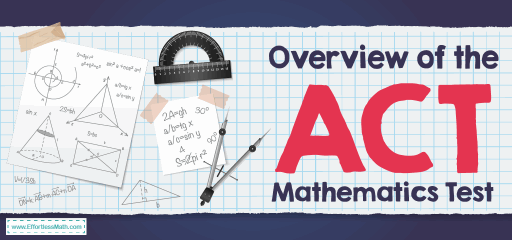
The ACT is a standardized test that assesses your university readiness and considers your grades during the admissions process. This is one aspect of measuring your eligibility for college or university admission. The test has five sections:
- English (45 minutes- 75 questions)
- Math (60 minutes- 60 questions)
- Reading (35 minutes- 40 questions)
- Science (35 minutes- 40 questions)
- Writing (40 minutes- Optional)
You have 2 hours and 55 minutes, plus an optional 40-minute Writing test to answer 215 questions.
The Absolute Best Book to Ace the ACT Math Test
t-flex wp-container-core-columns-is-layout-9d6595d7 wp-block-columns-is-layout-flex”>
Pre-Algebra (20-25%):
Pre-Algebra is typically taught in middle school as a warm-up class for regular algebra. It is designed to introduce concepts such as integers, factoring, and order of operation. The topics covered include:
- Basic operations
- How to use place value
- Factoring
- Square roots and exponents
- Scientific notation
- Ratios, proportions, and percentages
- Linear equations
- Data collection and interpretation
Elementary Algebra (15-20%):
Elementary algebra extends to the topics taught in pre-algebra. This includes the use of variables, how algebraic equations work. The topics covered include:
- More exponents and square roots
- Using substitution to solve Algebraic expressions
- Using variables
- Understanding how algebraic operations work
- Using factoring to solve quadratic equations
Intermediate Algebra (15-20%):
Intermediate Algebra involves quadratic equations, getting deeper into functions, and relations. More advanced topics, such as matrices and complex numbers, are also introduced. The topics covered include:
- Quadratic formula and inequalities
- Radical and rational expressions
- Absolute value equations and inequalities
- Systems of equations
- Functions and modeling
- Matrices
- Polynomial roots
- Complex numbers
Coordinate Geometry (15-20%):
Coordinate Geometry includes basic level concepts using points and lines using 2-digit coordinates. Graphing is a huge component because it shows how you turn algebraic equations into a photo. The topics covered include:
- Relationships between equations and graphs
- Parallel and perpendicular lines
- Slope line intercept
- Distance formula
- Midpoint formula
- Conics
- Graph inequalities
Plane Geometry (20-25%):
Plane geometry is made of coordinate geometry. The focus now moves from the coordinates and lines to the shapes on the flat screen. The topics covered include:
- Angles and relations for parallel lines and perpendicular lines
- Properties of triangles, circles, rectangles, parallelograms, and trapezoids
- Geometric proofs
- Transformations
- Volume
- Applying geometric principles to 3 dimensions
Trigonometry (5-10%):
Trigonometry is the study of angle functions and how they are used in mathematical calculations. Triangles are widely studied to help explain angular relationships.
- Trigonometric relations in right triangles
- Trigonometric function values and properties
- Graph trigonometric functions
- How to use trigonometric identities
- How to solve trigonometric equations
- Trigonometric function modeling
Best ACT Math Prep Resource for 2026
Do you give a formula sheet on the ACT Mathematics Test?
You do not have the right to have a formula in ACT, so memorize geometry, algebra, and trigonometry formulas before the ACT.
Is the ACT Mathematics Test hard?
In ACT Math, you have 60 minutes to answer 60 math questions. This is usually pretty hard for most students to get through – the answer to each question is just 60 seconds, and some of these questions take a long time.
Can you use a calculator on the ACT Mathematics Test?
The use of certified calculators in the ACT exam is allowed, but test designers note that all questions can be solved without a calculator.
How is the ACT Test scored?
In the ACT, each subject area is given a scaled score between 1 and 36.
College Entrance Tests
The Best Books to Ace the ACT Math Test
More from Effortless Math for ACT Test …
Are you looking for a FREE ACT Math course to help you prepare for your test?
Check out our Ultimate ACT Math Course.
Need Math worksheets to help you measure your exam readiness for your upcoming ACT test?
Have a look at our comprehensive ACT Math Worksheets to help you practice and prepare for the ACT Math test.
Want to review the most common ACT Math formulas?
Here is our complete list of ACT Math formulas.
Looking for FREE ACT Math websites to find free online resources?
Here is our complete list of Top 10 Free Websites for ACT Math Preparation.
Need a practice test to help you improve your ACT Math score?
Have a look at our Full-Length ACT Math Practice Test and Free ACT Math Practice Test.
Do you know the key differences between SAT Math and ACT Math?
Find your answer here: SAT Math vs. ACT Math: the key differences.
The Perfect Prep Books for the ACT Math Test
Do you have any questions about the ACT Test?
Write your questions about the ACT or any other topics below, and we’ll reply!
Related to This Article
More math articles
- What Kind of Math Is on the GRE?
- How to Graphs of Rational Functions?
- How Is the OAR Test Scored?
- How to Calculate and Interpret Correlation Coefficients
- How to Find the Reciprocal Trigonometric Functions?
- 8th Grade ACT Aspire Math Worksheets: FREE & Printable
- The Ultimate Adults Algebra Refresher Course (+FREE Worksheets & Tests)
- How to Complete a Graph and Table Linear Function
- Best Mobile Laptop Stands for Presentation in Schools
- Grade 3 Math: Word Problems: Division
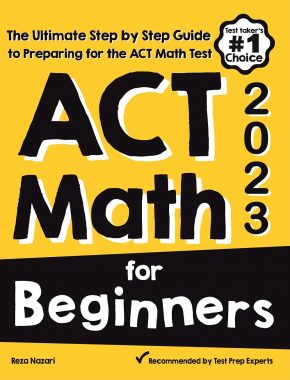
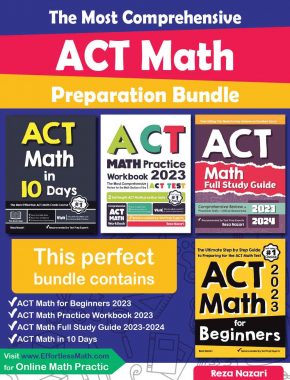
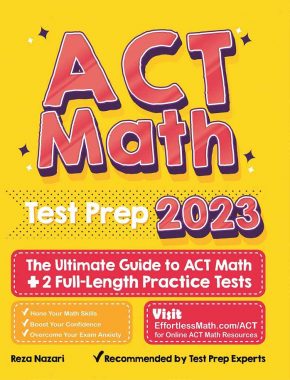
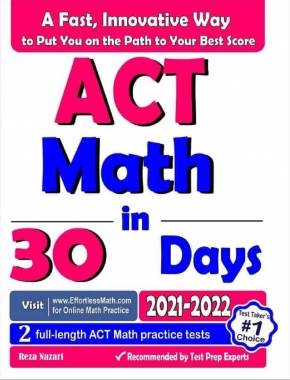
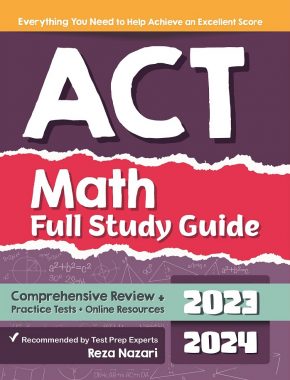
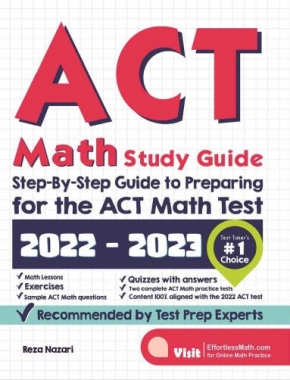
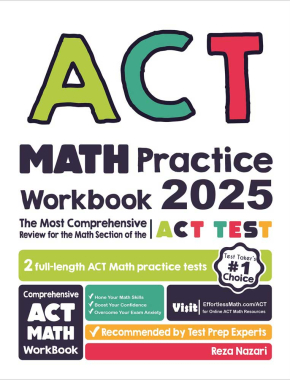
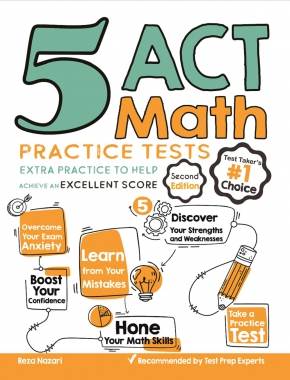
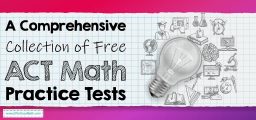
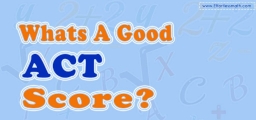
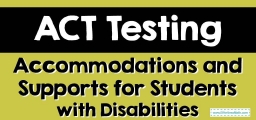
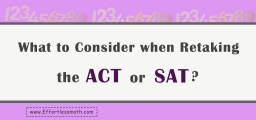

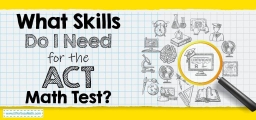
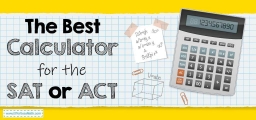
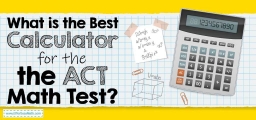
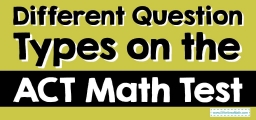

What people say about "Overview of the ACT Mathematics Test - Effortless Math: We Help Students Learn to LOVE Mathematics"?
No one replied yet.